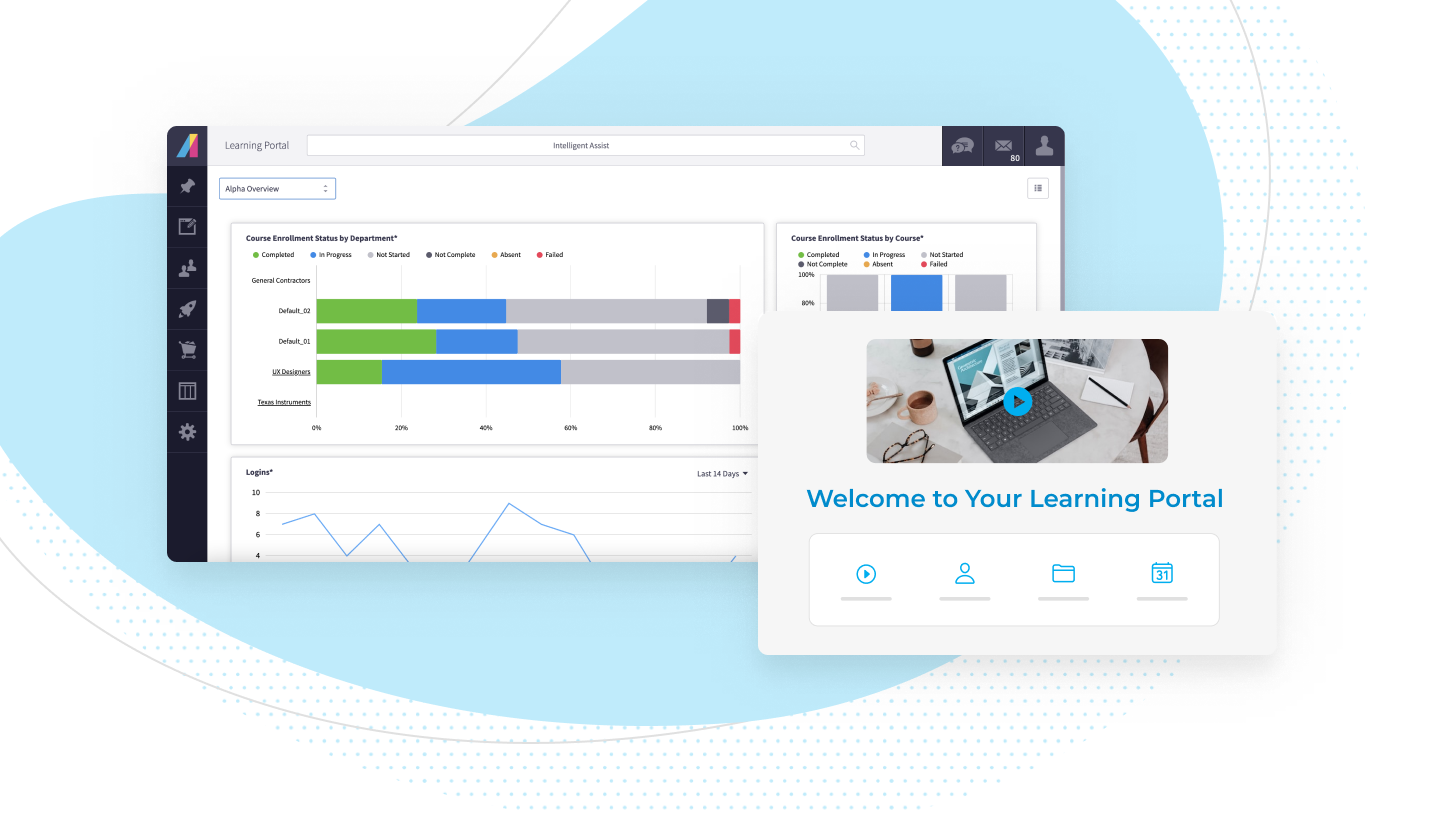Remember reflection? That's something we used to do occasionally before we all became hooked to checking our mobile devices every few minutes for our much-needed digital data fixes. Prior to the mobile revolution, people could at times be seen staring off into space, just thinking. If you were to spot someone doing that today, you'd think, "so sad. That person lost their phone."
Consuming information without taking the time to reflect is bad for the development of critical thinking skills. Without reflection, we become locked in a pattern of remembering and communicating information without taking the time to assess whether the information is true, utter garbage, or a valuable missing piece in a puzzle. Keeping and contributing regularly to a personal learning journal can be an effective way to encourage reflection and develop critical thinking skills. Mark Smith's article in the encyclopedia of informal education titled 'Keeping a learning journal' describes the following benefits:
What is a learning journal and how can it improve critical thinking skills?
The first and most obvious use of writing a journal is that it helps us to remember something later.
Second, the act of putting pen to paper (or finger to keyboard) engages our brains. To write we have to think.
Third, it isn't just that writing a journal stimulates thought — it allows us to look at ourselves, our feelings, and our actions in a different way.
Fourth, writing things down in a journal also allows us to clear our minds. Having made a note of something we can put them on one side for consideration or action at a later point.
Last, and certainly not least, making journal writing part of our routine means that we do take time out to reflect on what might be happening in our practice and in our lives generally
At its core, a learning journal is a personal record of your learning journey, which in turn helps to amp up critical thinking skills. It's a space where you capture your thoughts, insights, questions, and reflections about the information and knowledge you encounter. Unlike traditional notetaking, a learning journal goes beyond mere transcription; it's a dynamic and interactive account of your intellectual exploration. By dedicating a few minutes each day to jotting down your thoughts, insights, and newfound knowledge, you can unlock a range of benefits that significantly improve your learning journey. We've covered some key benefits of a learning journal below.
Improve learning
A learning journal serves as a personal repository for your thoughts and reflections. When you actively engage with what you've learned by writing it down, you reinforce your understanding. This process encourages you to think critically, ask questions, and connect new information with your existing knowledge, ultimately enhancing your grasp of the subject matter.
Deeper understanding and comprehension
Writing in a learning journal allows you to delve into the details of what you've learned. As you explain concepts in your own words, you gain a deeper understanding of the material. This practice can help you break down complex topics into simpler terms, making them easier to remember and apply in real-life situations.
Improved memory retention
Research suggests that the act of writing helps imprint information into your memory. By regularly summarizing and reflecting on what you've learned, you reinforce neural connections, making it easier to recall the material later. Your learning journal becomes a personalized reference guide, ensuring that important details remain accessible over time.
Personalized learning insights
Your learning journal is a unique record of your learning journey. Over time, you'll notice patterns in your interests, strengths, and areas for improvement. By identifying these trends, you can tailor your learning approach, focusing on topics that resonate with you and addressing any challenges you encounter.
Tracking progress and growth
As you revisit your learning journal, you'll be able to track your progress and growth over time. Witnessing your evolution from novice to adept can be incredibly motivating and provides a sense of accomplishment. This visual representation of your learning journey can boost your confidence and encourage you to continue your pursuit of knowledge.
Enhanced critical thinking and problem-solving skills
Writing in a learning journal prompts you to analyze, evaluate, and synthesize information. This practice hones your critical thinking skills, enabling you to approach challenges with a more structured and insightful perspective. By consistently engaging in this reflective process, you'll develop sharper problem-solving abilities.
How can a learning journal help you reflect on your own thought processes and biases?
In the intricate tapestry of our minds, thoughts weave and intertwine, often blurring the lines between what is reasoned and what is conditioned by biases. Enter the learning journal, a steadfast companion on the journey to self-awareness and critical thinking. As we aspire to improve learning, remember what we learn, and retain material effectively, the learning journal emerges as a beacon, guiding us through the labyrinthine corridors of our thought processes and revealing the biases that often lurk in the shadows.
Unmasking the unconscious
One of the most remarkable aspects of learning journals is their capacity to unravel the layers of our thinking, shining a light on the concealed biases that influence our perceptions. When we pen down our thoughts and reflections, we embark on a process of externalization – transferring abstract mental constructs onto tangible mediums. This act not only facilitates a clearer understanding of our thoughts but also serves as a mirror that reflects our underlying beliefs and preconceived notions. As we revisit our entries over time, patterns begin to emerge, showcasing the biases that might have inadvertently shaped our understanding. With this newfound awareness, we can engage in the vital process of critical thinking, questioning the roots of our biases and reevaluating their validity.
The evolution of thought
Learning journals are vessels of growth, capturing the evolution of our thought processes as we engage with new ideas and experiences and helping you remember what you learn. By revisiting past entries, we can trace the progression from initial reactions to deeper contemplation. This retrospective exploration offers us a unique perspective on how our biases might have influenced our interpretations at various stages. It's not merely about acknowledging biases but also about understanding how they impact the way we process information. As we actively engage in critical thinking while journaling, we cultivate a habit of introspection that prompts us to challenge our biases, thereby enhancing the quality of our thought processes.
Constructive self-dialogue
The pages of a learning journal become the canvas upon which we engage in a constructive dialogue with ourselves. This dialogue is the cornerstone of critical thinking. Through this internal discourse, we dissect our thoughts, analyze our assumptions, and scrutinize the lens through which we perceive the world. As we scrutinize our own reflections, we are compelled to confront the uncomfortable truths about our biases. However, this confrontation is not a condemnation; it's an invitation to transcend our limitations. Learning journals create a safe space for this process, allowing us to approach our biases with curiosity rather than defensiveness, ultimately leading to a more comprehensive and unbiased understanding of the material we encounter.
In the quest to harness the full potential of our cognitive abilities, the learning journal emerges as a formidable ally. It emboldens us to embark on a journey of self-discovery, unveiling the intricacies of our thought processes and shedding light on the biases that may shape our understanding. Through the act of reflective writing and the cultivation of critical thinking, we lay the foundation for a deeper engagement with the world, one that transcends the confines of biases and fosters a holistic approach to learning and growth.
How to harness the power of a learning journal with an LMS
Learning journals can be made a part of a critical thinking learning plan through the support of a learning management system (LMS). Here's an example of how this learning strategy might be implemented for a management skills curriculum:
Create a journal template in MS Word or your preferred text editor to distribute to your learners. This template should contain questions or comments to encourage critical thinking.
Upload the journal template and make it available to learners.
Create a task as part of the curriculum that enables learners to upload their journal. Learners will then be prompted to upload the file at the appropriate point in the curriculum.
In the event that you would like an instructor, coach, or mentor to review the learners' journals, provide them with access to the files through the administrative control panel of your LMS: Incorporating a learning journal into your daily routine can be a powerful addition to your learning experience. It not only improves your understanding and retention of material but also provides a space for personal growth, critical thinking, and progress tracking. By taking the time to reflect on what you learn, you'll harness the power of active engagement and create a valuable resource that will serve you well on your continuous journey of learning and self-improvement.








